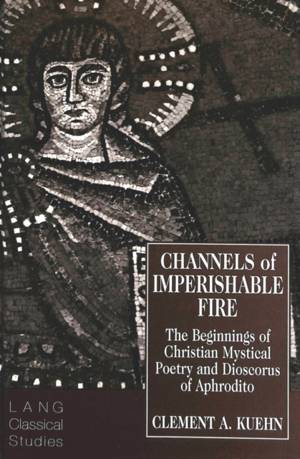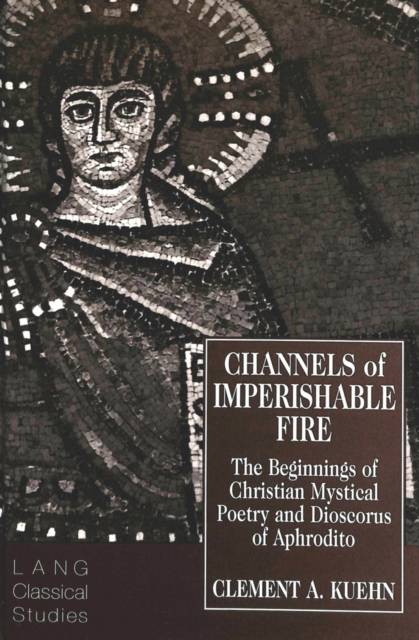
- Afhalen na 1 uur in een winkel met voorraad
- Gratis thuislevering in België vanaf € 30
- Ruim aanbod met 7 miljoen producten
- Afhalen na 1 uur in een winkel met voorraad
- Gratis thuislevering in België vanaf € 30
- Ruim aanbod met 7 miljoen producten
Zoeken
Channels of Imperishable Fire
The Beginnings of Christian Mystical Poetry & Dioscorus of Aphrodito
Clement Kuehn
€ 95,95
+ 191 punten
Omschrijving
Ever since the poems of Dioscorus of Aphrodito (ca. 520-ca. 585 C.E.) were discovered on papyri in Upper Egypt, they have perplexed and disturbed scholars. Written largely in an Homeric vocabulary, many appear to be praising dukes and other government officials according to encomiastic conventions. Yet the poems do not adhere closely to these conventions and contain many verses and passages which are nearly incomprehensible. This book demonstrates that many of these problematic passages have mystical significance and that the encomia possibly have an allegorical level of meaning. The study also reveals the valuable contribution these poems make to our understanding of early Christian mysticism and Late Antique culture.
Specificaties
Betrokkenen
- Auteur(s):
- Uitgeverij:
Inhoud
- Aantal bladzijden:
- 302
- Taal:
- Engels
- Reeks:
- Reeksnummer:
- nr. 7
Eigenschappen
- Productcode (EAN):
- 9780820426730
- Verschijningsdatum:
- 1/02/1996
- Uitvoering:
- Hardcover
- Formaat:
- Genaaid
- Afmetingen:
- 160 mm x 230 mm
- Gewicht:
- 609 g

Alleen bij Standaard Boekhandel
+ 191 punten op je klantenkaart van Standaard Boekhandel
Beoordelingen
We publiceren alleen reviews die voldoen aan de voorwaarden voor reviews. Bekijk onze voorwaarden voor reviews.











